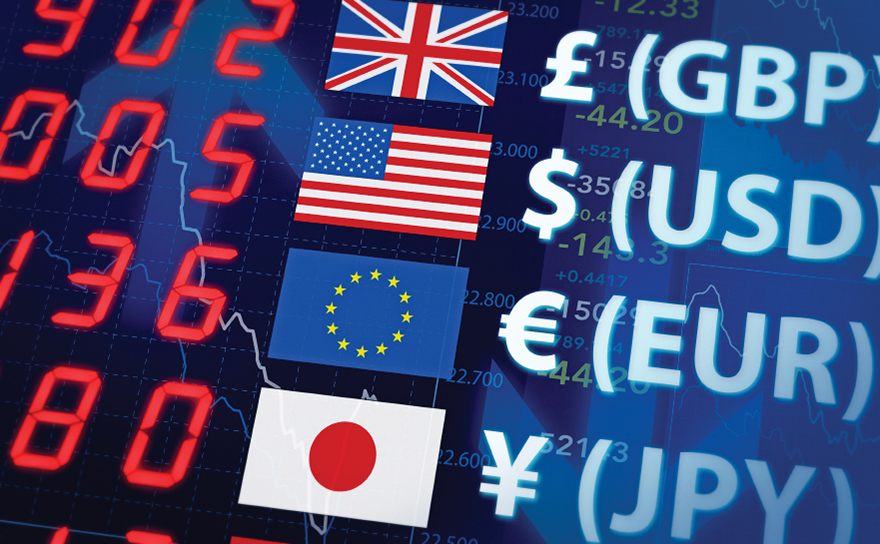Household Bills
Volatile pound: how to bag the best deal on your foreign currency

With the pound still trading close to a record low against the dollar and multi-year low against the euro, here’s our guide on getting the best deal on your holiday money.
The pound has been held hostage to Brexit headlines since June, hitting new lows against both the dollar and euro in the last six months. According to Caxton FX, the pound has lost around 19% against the dollar and 13% against the euro since the referendum.
On Monday, it fell below the $1.20 mark – a near 31-year low – ahead of a Brexit speech by prime minster Theresa May, which outlined plans for the UK to leave the single market.
Some bureaux de change were offering just $1.17 for £1 on Monday, according to travel money site Travelex.
While the pound regained some ground after May delivered her speech earlier today, the currency is still trading close to record lows, making it more expensive for British holidaymakers travelling abroad.
At the time of writing, the pound was trading at $1.23 and €1.15.
If you’re heading on holiday soon, here are top tips to ensure you bag the best rate for your pound.
Check specialist sites
It can be difficult to time exactly when to buy your foreign currency given all the volatility. On a practical level, to help you decide when the time is right, you should keep up to date with the news and check specialist rate websites such as Xe.com and Oanda.com to keep track of exchange rates and the currency markets.
Specialist brokers such as Netdania.com also offer daily reports and rate updates, and you can also keep track via the Travelex travel rate checker.
Factor in all fees
The headline exchange rate may look good but it’s important to check the overall price of the transaction after any fees. Often the best rate will be one with low commission and good value on handling costs, credit card charges and delivery fees.
Exchange more money for a better rate
If you think you’ll spend a fair amount of cash, consider exchanging larger amounts of money to get a better exchange rate. For example, Post Office money offers a €1.09 rate for orders of £400+ but if you exchange £500, you’ll get €1.11 for each pound. You’ll need to weigh up whether you’re comfortable taking such a large quantity of cash with you and if you don’t spend it all, it’s likely you’ll get a worse ‘buy back’ rate.
Currency specialist axton FX used to offer a ‘buy back guarantee’ (originally £4.99 then free for a certain period) promising to buy back your unused currency at the same rate you bought it for, so if the exchange rate changes you won’t lose out. This scheme is currently unavailable but it is due to re-launch at the end of February and will cost £4.99, Caxton FX confirmed.
Prepaid currency card
A prepaid currency card allows holidaymakers to pre-load currency on to the card and lock in the exchange rate on the day, which could be a good option if the value of the pound spikes on a particular day.
These cards also tend to offer better exchange rates than those from a bureau and with a prepaid card, you don’t need to load all your currency at once as they allow you to add smaller increments to avoid losing out on poor exchange rates.
See YourMoney.com’s Prepaid cards: what are they and are they right for your holiday? for more information and to see a comparison of the top cards.
Online vs in-store rates
You may be better off ordering your foreign currency online rather than checking the rate on the web then heading to the provider’s bureau. Research from M&S Bank found that of 12 foreign currency providers, only two offered customers the exact same advertised rate in-store as online.
Currency sales
Travel money sites such as Asda Money often run short-lived currency sales offering better rates on some currencies. While some may have an exchange minimum, it can mean you get a more attractive rate than offered elsewhere. Just make sure to factor in any delivery costs. Keep an eye on Yourmoney.com for details of upcoming currency sales.
Avoid airport bureaux at all costs
You should avoid airport bureaux at all costs – some airports are offering close to £1 for €1 and some even less.
Always avoid picking up your travel cash from the airport as you are bound to get significantly less for your pound. Being captive markets, airports will take a much higher margin for foreign currency. Even if the rate is just 2% higher, this could be as much as £40 on the average family’s holiday spending money.